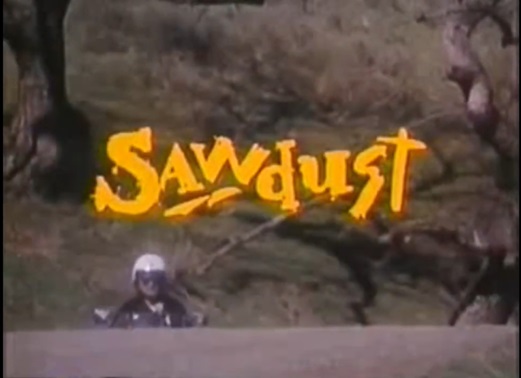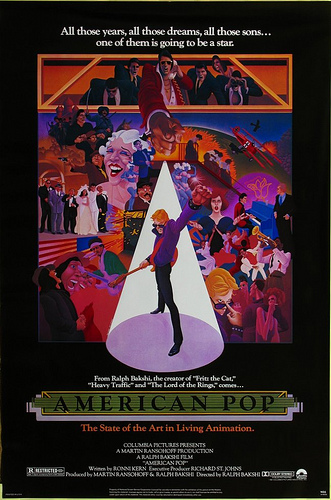Welcome to Retro Television Reviews, a feature where we review some of our favorite and least favorite shows of the past! On Thursdays, I will be reviewing Sawdust, which aired on CBS in 1987. The entire show is currently streaming on YouTube!
From executive producer Ed Zwick, we have a show about a really terrible father.
Episode 1.1 “Pilot”
(Dir by Jeffrey Hornaday, originally aired on July 3rd, 1987)
We bought a circus!
That’s the premise behind Sawdust, in which an accountant named Max Galpin (James Eckhouse) buys a circus after the owner dies. He then pulls his teenage children out of school and, along with his wife, he decides to live with and run the circus.
What!?
Like seriously, why would he do that? Unfortunately, the purchase of the circus and the moment when Max tells his family that he’s ruined their lives all take place off-screen. Max mentions them in his voice-over narration and he says something about how, at an auction of the former owner’s possessions, he bid on the circus but he was surprised when he won. So, I guess maybe Max wasn’t actually planning on buying the circus but he just bid on it to …. what? I mean, as a part of my day job, I have been to auctions before and I’ve bid on stuff for my boss. It was fun and yes, sometimes people do make bids just to run up the price of something. But I still find it hard to believe that someone could 1) accidentally buy a circus and 2) justify uprooting his family to run the circus.
At first, Max’s wife (Marsha Waterbury) and his daughter (Kellie Overbey) and his son (Bradley Gregg) are not happy with him but that changes once they actually arrive at the circus and get caught up in the excitement of putting on a show. Max’s daughter takes the longest to come around, mostly because Max wants her to wear a skimpy outfit while walking across a tight rope that is suspended above the ground. His daughter probably wouldn’t die if she lost her balance but still, it would be embarrassing and what type of father does that to his daughter? I mean, is walking across a tight rope an easy thing to do? Meanwhile, Max gets shot out of a cannon, his wife works with an elephant, and his son dresses up like a gorilla. Max is willing to risk his daughter’s dignity but his son just has to dress up like a gorilla. What the Hell?
Max gets to know the ringmaster, Serge (Elya Baskin), who quits in a huff but then comes back because the circus is all he knows. And Leslie Jordan shows up, not saying a word but playing various musical instruments. We also meet a man who has been hired to serve as the tutor for Max’s kids because again, Max has pulled them out of school so that they can join the circus. Max really is a terrible father. What a jerk. Seriously, his children have not only left behind all of their friends but also whatever hope they may have had of getting into an Ivy League college. Now, they’ll have to settle for a state school. And why? Because their father, despite having no circus experience, decided to run a circus.
This pilot was so weird. There was a laugh track but the show took itself oddly seriously. Max is a character to whom most viewers would have mixed feelings and the rather frantic performance of James Eckhouse does little to make him sympathetic. There would not be a second episode.

 Long before South Park, The Simpsons, and Pixar, there was Ralph Bakshi. At a time when animation was considered to only be good for children, Bakshi shocked audiences and critics with animated films that dealt with mature themes and were definitely meant for adults. His first two films, Fritz the Cat (1972) and Heavy Traffic (1973), was the also the first two animated films to receive an X-rating. Bakshi satirized racism in the controversial Coonskin (1975) and Bakshi’s adaptation of The Lord Of Rings (1978) beat Peter Jackson’s by 23 years. It was after the critical and commercial disappointment of the heavily flawed but interesting Lord of the Rings that Bakshi decided it was time to make a film that would be more personal to him. The end result was American Pop.
Long before South Park, The Simpsons, and Pixar, there was Ralph Bakshi. At a time when animation was considered to only be good for children, Bakshi shocked audiences and critics with animated films that dealt with mature themes and were definitely meant for adults. His first two films, Fritz the Cat (1972) and Heavy Traffic (1973), was the also the first two animated films to receive an X-rating. Bakshi satirized racism in the controversial Coonskin (1975) and Bakshi’s adaptation of The Lord Of Rings (1978) beat Peter Jackson’s by 23 years. It was after the critical and commercial disappointment of the heavily flawed but interesting Lord of the Rings that Bakshi decided it was time to make a film that would be more personal to him. The end result was American Pop.